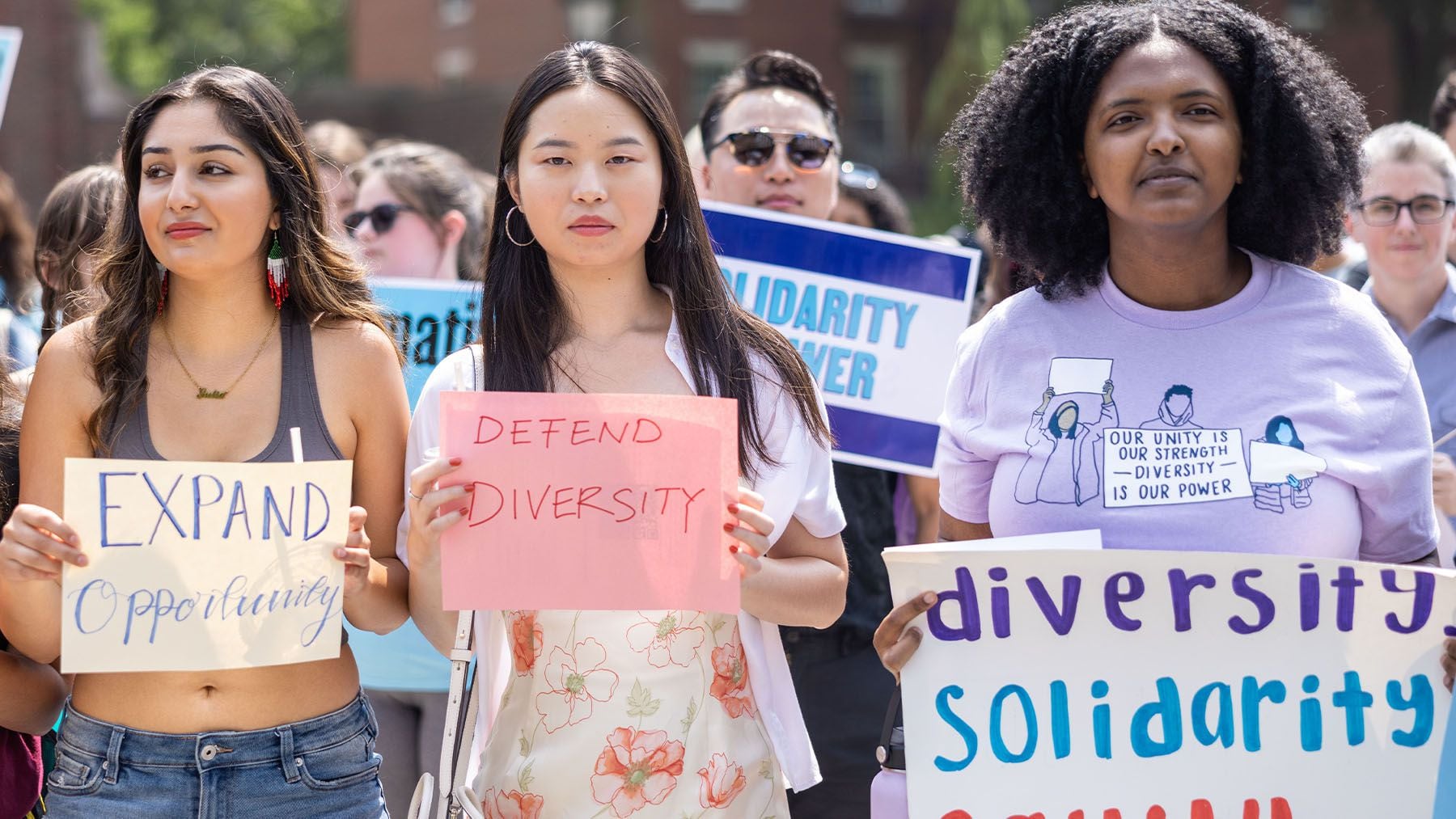
When publicist and Glam Body founder Danika Berry set out to launch Black Beauty Founders, an organisation to provide resources and networking opportunities to Black women in the beauty industry, she expected to face the familiar hurdles of corralling investors, or convincing retailers to open up shelf space for Black brands.
What she didn’t anticipate was that she’d spend weeks mulling new tactics to shield her new organisation from conservative activists.
Berry had good reason to worry. When she launched a holiday of the same name (National Black Founders Day) back in August, to recognise the contributions of Black women to the industry, it was just over a month after the Supreme Court overturned university affirmative action programmes. By the fall, conservatives were targeting a host of companies and organisations with programmes aimed at supporting underrepresented groups. In October, a federal court ordered The Fearless Fund, an Atlanta-based venture capital firm that invested in minority-owned brands to pause grant applications while it weighed a legal challenge. In November, a conservative group asked a US regulator to investigate whether Macy’s diversity goals were discriminatory.
Black Beauty Founders is going ahead later this month. But Berry said she pushed back the launch by a month so she could work out language that would speak to her underlying mission without running afoul of still-undefined new rules. Rather calling significant attention to “Black women,” her group’s website speaks to “all BIPOC women,” and uses other less-conspicuous terminology, she said.
To Berry, the backlash represents another hurdle for entrepreneurs and brands that already struggle to raise funding and catch the attention of retailers.
“It’s not fair to us,” said Berry, who was also a longtime publicist for Black-founded brands like Mielle Organics, Camille Rose and Kaleidoscope. “There’s a [discrepancy] between how much we spend and how much funding we get. It’s why I created [this organisation] … and I don’t want to get in trouble for wanting to help Black women.”
Berry’s frustrations mirror those of many Black entrepreneurs, industry stakeholders and large companies that have been championing diversity and inclusion for years but must now weigh whether their commitments can weather a ferocious political and legal blowback.
The costs are piling up. Companies are renaming their DEI departments, or quietly winding them down. In December, Macy’s appointed a new chief legal officer with experience “steeped in diversity battles,” Bloomberg Law reported.
But the backlash has also helped trigger what some experts say is a much-needed shakeout in the corporate approach to DEI. As it becomes riskier to publicly engage on the topic, it’s becoming clearer which companies and individuals were committed to diversity for the long haul and which efforts were shallow attempts to jump on the 2020 bandwagon.
“Those of us who have experience in DEI were saying in 2020 that this is a marathon — not a sprint,” said Porter Braswell, founder and CEO of 2045 Studio, a membership network for BIPOC professionals. “Diversity fatigue is something that we knew was going to happen. There’s nothing that’s happening that’s surprising to those that have been in this space and really doing this work.”
Navigating New Anxieties
What most conservative activists are targeting is the “framing” of DEI, said Braswell, not necessarily the end goals. Companies, therefore, can approach some of this as a rebranding exercise, he said, and “market DEI differently.”
An October report by the Association of Corporate Citizenship Professionals, a trade organisation representing environmental, social and governance professionals (including many corporate DEI specialists), found in a survey that 86 percent of its members had changed the way they talk about their work publicly, or have reduced external communications. But only 9 percent reported a decrease in commitment to DEI itself.
Berry noted that while the language around her organisation and work have changed, her goals haven’t.
“This is a scare tactic [by conservative activists] to make us not want to get into the fight,” she said. “But I feel like we need to continue the fight and not allow these people to scare us.”
The New DEI Framework
The changes happening across DEI aren’t just cosmetic.
As many fashion and beauty companies began to navigate DEI goals for the first time in 2020, many were “too rigid” and clinical in their approach — focusing primarily on “box-checking” or reaching numerical targets by any means necessary, said Amber Cabral, a DEI strategist who runs her own consultancy.
Often, that led to brands working off a checklist of easy DEI wins — like creating employee resource groups and putting on celebrations for heritage months — without considering whether those groups’ meetings were well attended, or if employees whose cultures were being celebrated faced bias in the workplace.
In this new landscape, companies have to get more “tactical and practical,” in their approach — drilling down in areas like management training, communication and improving their hiring and onboarding practices, Cabral said.
This may also involve eschewing or tamping down on the use familiar corporate labels and DEI jargon — and focusing on ways to embed inclusivity into the day-to-day activities of a business, Braswell said. A job post doesn’t necessarily have to specify that only minorities apply. Instead, companies can broaden the qualifications for their jobs in areas like education and job experience — which should more organically diversify their candidate pool.
Companies will continue to need “support” in the form of a DEI consultant or head of DEI — even if it goes by another name — as well as legal counsel to help them sidestep complications, Cabral said. But they’ll need to be more thoughtful about how the role is defined, its budget and resources, and where the department sits within the organisation.
Most importantly, the new framework should take DEI out of the social impact bucket — which makes diversity seem like charity work. The function should have greater proximity to the C-suite and other departments (like marketing or research and design) where it’s rightfully connected to revenue targets and an increasingly diverse consumer base, experts say.
If companies need motivation to push through all this, they should think about their future customers — most of whom are likely to be ethnically-diverse, Braswell said.
“It’s undeniable that by the year 2045, this would be a majority racially-diverse United States,” he said. “So if fashion brands — more than any [other industry] — don’t understand the changing consumer demands and habits and have a workforce that’s reflective of those changes and makes products for those changes — they will be irrelevant.”



